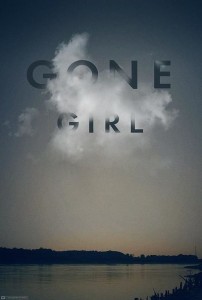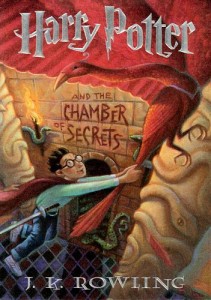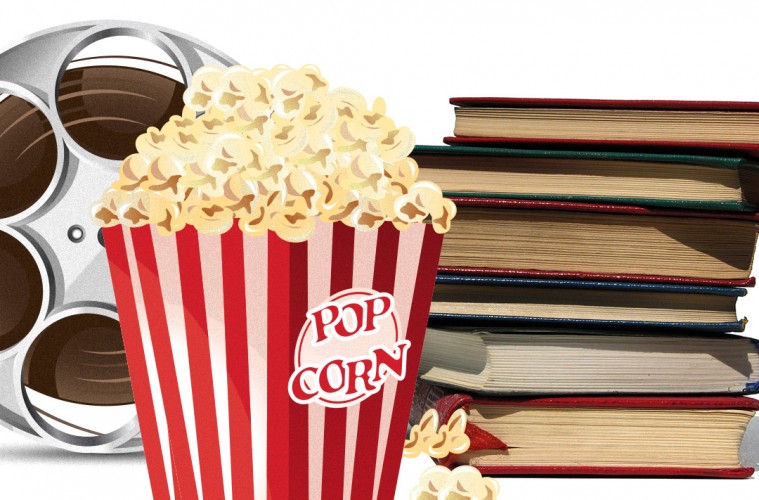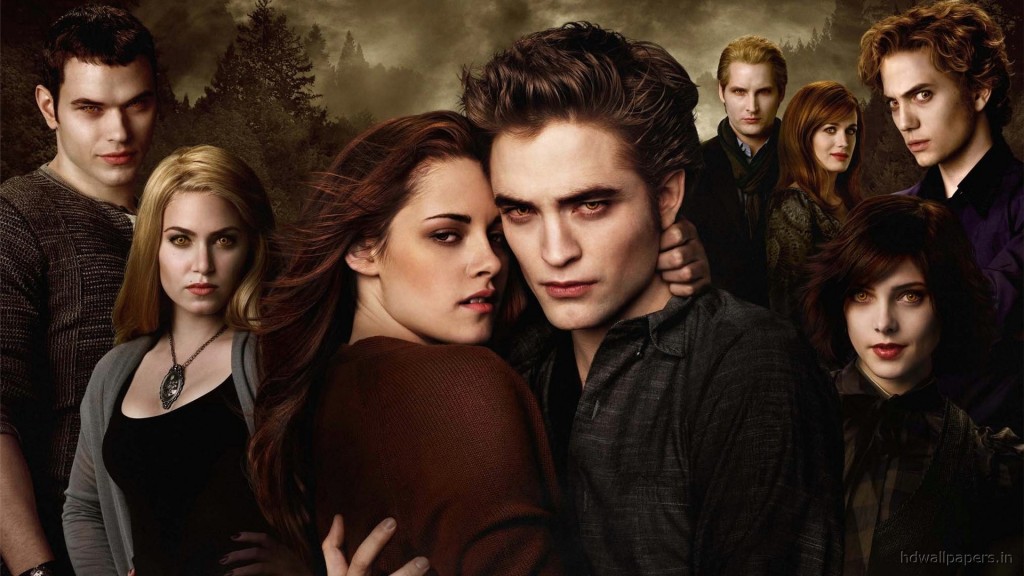The book was better” is no doubt a phrase you’ve heard countless times, and maybe you’ve uttered it a few times yourself. As geeks, when we hear about a movie adaptation of a book we love, the momentary excitement we feel sometimes sours into dubious skepticism. “They better not mess it up,” we grumble as we read an article about the forthcoming movie. “They’re going to ruin it,” we later whine as we watch the trailer. Sometimes we don’t watch the film at all. Or we watch it with derision, scanning for pitfalls to complain about later. And sometimes our disappointment for what the movie left out overshadows the joy we should feel for the things the movie did extremely well.
I’m guilty of this, too. Whenever I watch a movie adaptation of one of my favorite books, my excitement is mixed with wariness. Or, if I hear about a movie adaptation of a book I haven’t read, I read it before I even watch the movie, so I’ll know the plot and determine the movie’s merit from there. And when the movie isn’t exactly as I imagined it (because it can’t be), or doesn’t keep 100% true to form, I get frustrated, cursing the movie’s downfalls and telling my friends, “Yeah, the movie was good, but the book was so much better.” What’s my basis for comparison, anyway? If I’m being honest, there’s really no excuse for getting annoyed when a movie fails to capture the book the way I, a single reader in a fandom, pictured it. It is a matter of different, interesting comparisons after all.
Why do we expect movies to be carbon copy visual replicas of a work of literature? We don’t hold remixes or covers of songs to the same expectation; we love that musical adaptations are new and fresh, not replicas of the original. We don’t whine when we experience other adaptations of original works, and yes, I’m talking about fanfiction, comics, fan art, and pretty much fan anything else. We don’t even care all that much if the scripts of movies are book-ified later on. So what is it about movie adaptations that gets our hackles up? Why do we expect movies to be identical to the book in every way when they fundamentally can’t be?
 Sure, some movie adaptations are just plain bad, and sometimes they change integral plot points or omit characters (e.g. why was Peeves never in a single Harry Potter film? And don’t even get me started on the Mortal Instruments adaptation; maybe that’s why they’re trying their hand at a television show…). But most film adaptations are just different, not awful. The Hunger Games, to my mind, does a good job of adapting the books, at least for the first two, although I haven’t seen Mockingjay – Part 1 yet, so I’ll wait to pass judgement. Pride and Prejudice (both the Colin Firth and Keira Knightley/Matthew Macfadyen adaptations) capture different yet equally wonderful things about the book, and Mr. Darcy is pretty dreamy no matter what. Gone Girl is my favorite example, and I hold it up as a pinnacle of what a good movie adaptation of a book should be. But why? Because it captures the plot point by point, because all the characters are recognizably themselves because the ending wasn’t changed to make room for a sequel? Yes, but it’s more than that. Gone Girl‘s film version does a great job of keeping the heart of what makes the book good: unlikeable characters, a gritty sense of dread that never wavers, and a suspenseful plot that throws in fabulously surprising twists and turns. If this ignites your need to watch some more suspenseful films, there are websites such as Likewise that can offer up more that may turn out to be your favorite.
Sure, some movie adaptations are just plain bad, and sometimes they change integral plot points or omit characters (e.g. why was Peeves never in a single Harry Potter film? And don’t even get me started on the Mortal Instruments adaptation; maybe that’s why they’re trying their hand at a television show…). But most film adaptations are just different, not awful. The Hunger Games, to my mind, does a good job of adapting the books, at least for the first two, although I haven’t seen Mockingjay – Part 1 yet, so I’ll wait to pass judgement. Pride and Prejudice (both the Colin Firth and Keira Knightley/Matthew Macfadyen adaptations) capture different yet equally wonderful things about the book, and Mr. Darcy is pretty dreamy no matter what. Gone Girl is my favorite example, and I hold it up as a pinnacle of what a good movie adaptation of a book should be. But why? Because it captures the plot point by point, because all the characters are recognizably themselves because the ending wasn’t changed to make room for a sequel? Yes, but it’s more than that. Gone Girl‘s film version does a great job of keeping the heart of what makes the book good: unlikeable characters, a gritty sense of dread that never wavers, and a suspenseful plot that throws in fabulously surprising twists and turns. If this ignites your need to watch some more suspenseful films, there are websites such as Likewise that can offer up more that may turn out to be your favorite.
Admittedly, not all film adaptations can do that, so I’ve had to come to terms with expanding my reasoning for why movie adaptations of books can be good on their own. Tim Burton’s Alice in Wonderland is a great example. It’s nothing like Lewis Carroll’s original (save the recurring cast of characters we all recognize), but it’s still great because it captures the whimsical, confounding world of Wonderland and it’s a visually stunning movie. It’s good and different.
Another great example is James Patterson’s Zoo, which was turned into a television show this summer. Anyone who’s read the book can tell you that the show takes the story in a completely different direction. And you know what? That’s okay. I still liked both the book and show, even though I was enjoying them in tandem. The show stands on its own not because it’s a replica of the book, but because it keeps the theme and tone of the book (which mainly involves lots of animals running rampant and killing humans) while introducing new characters and changing the plot just enough to keep audiences who may have read the book guessing. And enjoying both the book and the show meant double the time I got to spend in this fascinating world of behavioral science and cross-continental political intrigue.
 So when you think about movie adaptations of your favorite books, do yourself a favor. Remember that movies are their own type of media intrinsically different from books, and they have to tell stories their own ways. For starters, a film is a collaboration among different artists who blend their own artistic styles, intentions, and desires to fuel a film’s direction and final form. Additionally, films simply can’t replicate the exact way a book tells a story because you don’t read a movie, you watch it. And more variables (actors, script, set design, costume, soundtrack, etc.) means there are more things that can be changed or “go wrong” and thus more ways for us to deride it. But it’s more than that, too. Books can also take their time telling stories. Movies can’t. 500-page books would equate to 10 hour movies, and while we all believe we could sit through 10 hours of Harry Potter and the Chamber of Secrets, could we, really? More importantly, is it necessary? The geek in me says “yes,” but the movie watcher in me says “I don’t think so.” Some might be able too if they had an awesome double garage home cinema. Then it would be comfy to enjoy all of the movies.
So when you think about movie adaptations of your favorite books, do yourself a favor. Remember that movies are their own type of media intrinsically different from books, and they have to tell stories their own ways. For starters, a film is a collaboration among different artists who blend their own artistic styles, intentions, and desires to fuel a film’s direction and final form. Additionally, films simply can’t replicate the exact way a book tells a story because you don’t read a movie, you watch it. And more variables (actors, script, set design, costume, soundtrack, etc.) means there are more things that can be changed or “go wrong” and thus more ways for us to deride it. But it’s more than that, too. Books can also take their time telling stories. Movies can’t. 500-page books would equate to 10 hour movies, and while we all believe we could sit through 10 hours of Harry Potter and the Chamber of Secrets, could we, really? More importantly, is it necessary? The geek in me says “yes,” but the movie watcher in me says “I don’t think so.” Some might be able too if they had an awesome double garage home cinema. Then it would be comfy to enjoy all of the movies.
Books and movies aren’t “better” or “worse” than each other; they’re just separate forms of entertainment occasionally borrowing stories from each other to entertain us. So try to enjoy a film adaptation of your favorite book on its own merit, watch for what it does well, and try to appreciate how it tells its version of the story.
Unless it’s unequivocally awful. Then feel free to judge it all you want.
Featured image via Creative Commons. Gone Girl image via Roger Ebert. Harry Potter image via Wikimedia. Twilight image via J-14.



